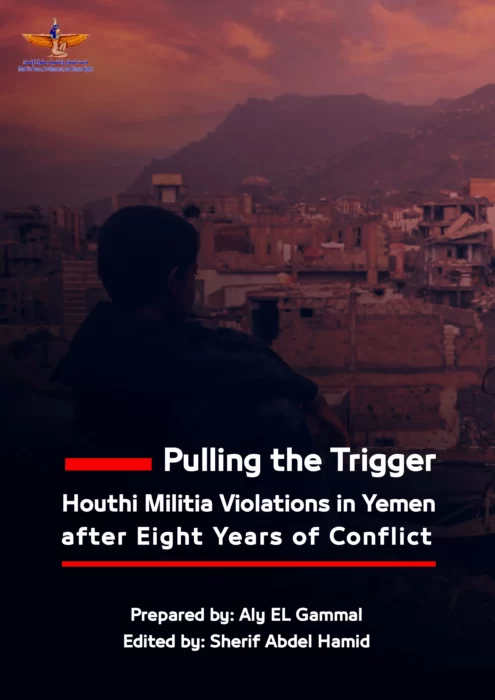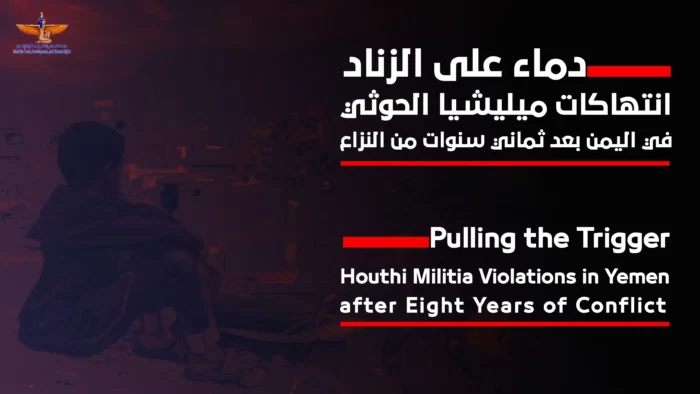"Pulling the Trigger" A New Study by Maat Monitoring the Suffering of Yemenis over Eight Years of Conflict
Okeil: The Houthi militia relies on a strategy of intimidation of civilians in Yemen
Ali Al-Jamal: Civilians in Yemen bear the brunt of the armed conflict
Maat for Peace, Development and Human Rights issued a new study entitled "Pulling the Trigger Houthi Militia Violations in Yemen after Eight Years of Conflict", which monitors and analyzes the human rights situation in northern Yemen, which is under the control of the Houthi militia that is designated by Security Council Resolution No. 2426 of 2022 as a terrorist group since its control of the capital, Sanaa, in September 2014 until now.
The study stressed that Yemen is still experiencing the worst humanitarian crisis in the world, with about 17.3 million people suffering from food insecurity, 21.6 million in need of some form of assistance, and about 20.3 million lacking basic health services. The study also indicated that the UNDP has estimated the death of 1.3 million people, along with the death of a child every five minutes if the conflict in Yemen continues until 2030.
The study also indicated that not respecting human rights and fundamental freedoms in the areas under the control of the Houthi militia puts further pressures on the Yemeni people, especially the 70% of the population living in the areas under their control, with only 30% of the population lives in areas governed by the Presidential Leadership Council.
The study focused on violations of international humanitarian law, especially the targeting of civilians with indiscriminate attacks, attacking infrastructure, civilian objects, and the use of internationally prohibited weapons and explosive weapons against civilians by the Houthi militia. All this in addition to the use of torture as a tool in the conflict, as well as violations of international human rights law, especially summary and arbitrary executions, violations of freedom of opinion and expression, freedom of the press, and denial of education, the right to work, and the right to health, as well as abuses against the most vulnerable groups in Yemen such as women, children, minorities, and migrants.
In this context, Ayman Okeil, an international human rights expert and President of Maat, stated that the Houthi militia depends heavily on the intimidation of civilians under its control, which claims the lives of thousands, causes uncountable injuries and forces hundreds of families to displace their homes and live in camps that lack basic services.
Okeil added that impunity and failure to open transparent investigations into all violations of humanitarian and international human rights law still prevail in northern Yemen, making such violations a frequent pattern of Houthi militia. The Houthi militia's breach of the armistice on October 2, 2022, and their desire not to extend it, may lead to more human rights violations, worsening the already dire humanitarian situation in northern Yemen.
Ali Al-Jamal, Deputy Director of the International mechanism Unit at Maat, said that civilians in Yemen bear the brunt of the armed conflict more than others, and after nearly eight years of armed conflict, the number of civilian casualties has reached more than 64,000 civilians, including about 15,000 dead and nearly 50,000 injured, most of them are women and children, and he added that the casualty figures may be higher, but the lack of reporting and documentation makes us get little information about the victims killed.

 |
 |











